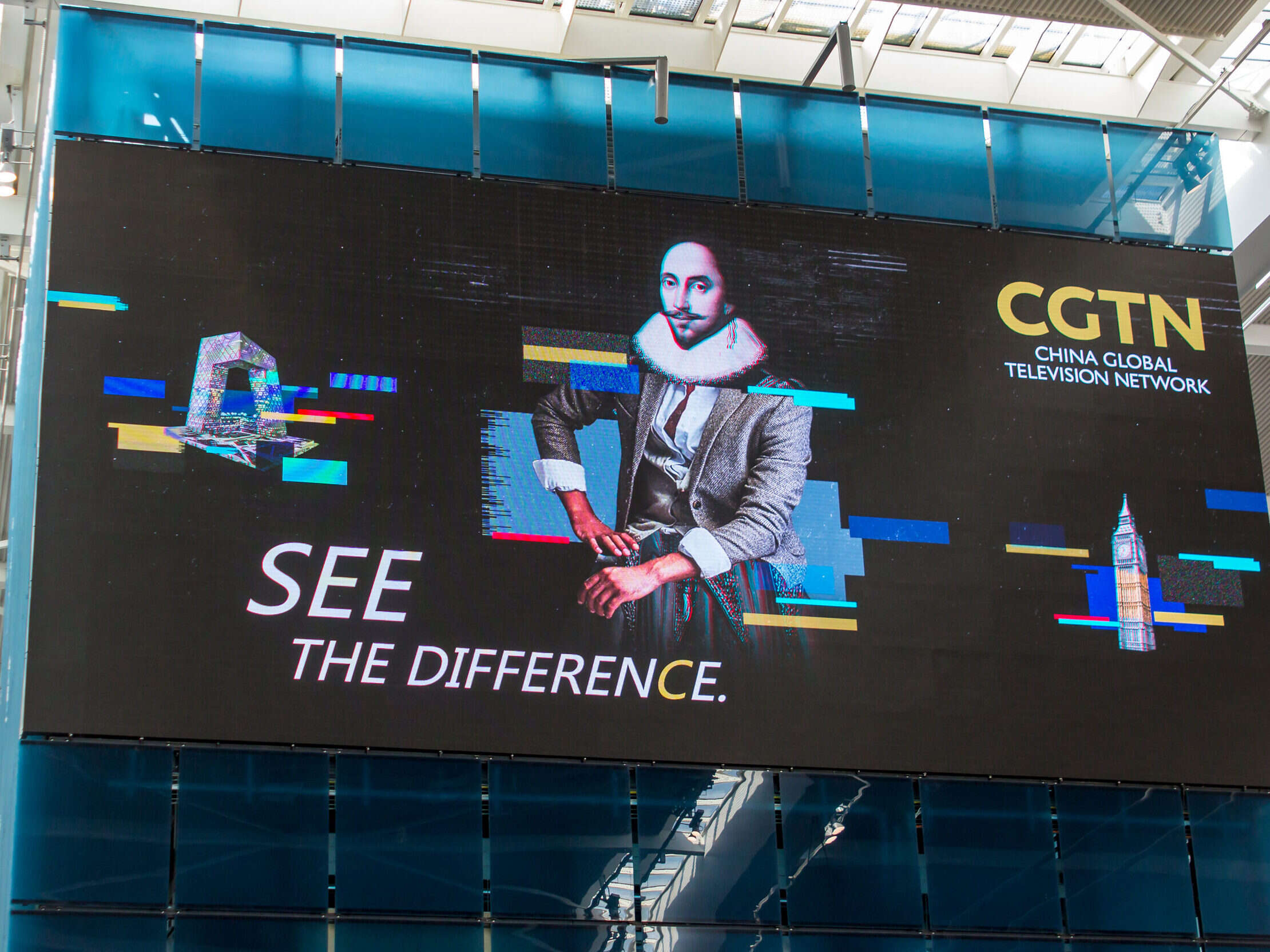
Judges have dismissed an appeal by the Chinese state broadcaster’s international division, China Global Television Network (CGTN), against a £125,000 fine handed down by Ofcom.
The UK broadcast regulator sanctioned CGTN licence holder Star China in 2021 over four editions of The World Today and one of China 24 that aired in 2019. It said the programmes were not duly impartial in their reporting of protests in Hong Kong.
The fine came shortly after Ofcom revoked CGTN’s licence, banning it from broadcasting in the UK because of its overarching control by the Chinese Communist Party.
Star China argued in court that because it had its licence taken away by the time of the penalty, a lesser fine – suggested as low as half of £125,000 – would have been sufficient since there was no longer a need to deter it from further breaches of the Broadcasting Code.
Court of Appeal backs Ofcom’s £125,000 fine against CGTN
Appeal judge Sir Geoffrey Vos said while this argument appeared “superficially logical and attractive”, it was wrong.
He noted the penalty was not just to punish the offending broadcaster but had to deter others and set an example of the likely penalties if others were to be similarly found to breach the due impartiality requirements. It also had to fit into Ofcom’s own precedents, he added.
“Had Ofcom, for example, halved the penalty that it thought, in its preliminary view, would have that effect, it would no doubt have sent a different and less impactful signal to other broadcasters,” Sir Geoffrey said in his judgment.
He added that there was nothing to show Ofcom had not properly carried out its standard process, saying its written decision on the sanction showed “that it considered ‘all the circumstances of the case in the round’, whether the penalty would act as an ‘effective incentive to compliance’, having regard to the seriousness of the infringement, the size and turnover of Star China.”
Star China suggested Ofcom could have fined it only half the proposed amount and published a statement explaining that if the broadcast licence had not been revoked, it would have imposed the full penalty.
But Sir Geoffrey argued: “I find it hard to see how publishing a clearly worded sanction decision explaining that, but for the revocation of Star China’s licence, Ofcom would have imposed a higher financial penalty, could be a proper substitute for the imposition of a penalty likely to deter other broadcasters, which the rules require.
“It is true that Ofcom can and does deal with some more minor infringements without imposing any financial penalty, but these were serious breaches [that] required a sanction at the higher end of the scale. One can understand why Ofcom would not want to encourage other broadcasters to think that a penalty could be avoided or reduced by forfeiting the licence.”
The Court of Appeal, therefore, decided to back an earlier High Court judgment that said Star China’s failure to demonstrate Ofcom’s penalty was an unjustified interference of its freedom of expression rights under Article 10 of the European Convention on Human Rights, to which the UK is still held to.
Sir Geoffrey said the £125,000 fine “struck an acceptable balance between the rights of Star China and the interests of the community” and “was within the range of the least intrusive measures needed to achieve the legitimate objective of achieving due impartiality”.
“Due impartiality in news broadcasting is prescribed by law in the 2003 [Communications] Act and is necessary in our democratic society for the protection of the rights of the members of that society.”
Email pged@pressgazette.co.uk to point out mistakes, provide story tips or send in a letter for publication on our "Letters Page" blog
